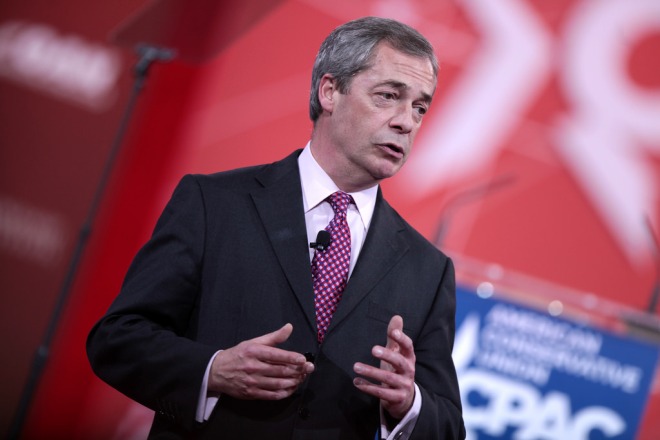
We all know, or at least most of us do, that many of our so-called newspapers are as full of pork pies as a butchers in Melton Mowbray. But proving this is not always straightforward.
Papers have become more subtle in their techniques in recent years, especially in the wake of the Leveson Enquiry and with the danger of obvious indiscretions being circulated across social media. Rarely will you see the press publishing a complete and obvious lie that can be taken apart in seconds. But this doesn’t mean that the worst offenders have become any more noble in their craft.
Here are nine common techniques used by papers to pull the wool over the eyes of their readers.
-
THE ROGUE HEADLINE
One of the most common of all techniques is the rogue or misleading headline. This is where a sensationalist headline is used that almost tells a totally different story from what appears in the actual text. Papers know the power of a headline – many people will only remember the headline and maybe the first couple of sentences of text, so papers often try to get away with misleading readers with the bold print and then claiming they haven’t lied as the main story is factually accurate. However, regulators can hold papers to account if the headline isn’t supported by the actual story.
An example of this is a front page in the Sunday Express which read MONSTERS ARE GIVEN THEIR OWN CELL KEYS with the sub-heading ‘Ian Huntley and Rose West are virtually roaming at will‘. The intention with the headline was to give the impression that soft-touch prisons were allow prisoners to live a Life of Riley, but the actual story explained that only privacy locks had been issued to prisoners to protect their belongings when they left their cells. Main locks to the cells were still controlled by prison guards.
Another tactic with headlines is the use of quotation marks to make someone’s statement appear as if it is a fact. Again, we can use an example from the Daily Express with a recent headline SYRIAN REFUGEE WITH FOUR WIVES AND 23 CHILDREN “CLAIMS £320,000 A YEAR IN BENEFITS”. The refugee in question hadn’t claimed this amount in benefits at all, a German blogger had merely made a statement about what he thought the refugee and his families would be able to claim. By lifting this quote from the blogger and using it in the headline, the Express tries to make it appear as a fact despite there being no evidence for it.
-
FACT-BURYING
Closely linked to the rogue headline is fact-burying, which also relies on readers not fully digesting the whole article. This can be particularly effective with longer articles. Papers will often put their own spin on a story, which may be completely misleading, while hiding key facts way down in the article. Like with instances of rogue headlines, they think this gives them some insurance against charges of lies and deception.
A good example of this is a Daily Mail article titled WISH YOU WERE HERE? REFUGEES ARE TAKEN ON £100,000 JOLLIES TO ZOOS AND THEME PARKS… AND GUESS WHO’S PAYING FOR IT ALL. The article paints a picture of refugees milking the public purse for holidays and it’s only near the end of the article that it is made clear that the trips are a tiny end part of a charity-run education, skills and confidence-building project aimed at unaccompanied refugee children.
-
TWISTING STATISTICS
How often do we see phrases such as ‘ALARMING STATISTICS’ or ‘SHOCKING NEW FIGURES’ screaming from the headlines and sub-headings of tabloids? Pretty often. Yet how often are links to the source of the data provided? Almost never.
Papers occasionally just make these figures up, but more often they cherry-pick statistics or key passages from a report to suit their agenda without putting it in the context of the overall report. This enables them to put out a completely different story from what features in the original report, such as with this article by the Daily Mail about an EU study on immigration and living standards.
Statistics are often meaningless on their own and taken out of context. People are also often easily confused by statistics involving big numbers taken out of context. For example, saying the UK’s annual foreign aid budget is £12 billion is likely to stir emotions in people as it sounds a lot. But explaining that it’s only 0.7% of the overall annual budget puts it into context and is less likely to anger people.
But papers know that they can use isolated big figures to wind people up. They also know that using such numbers from official sources makes them seem more legitimate.
Occasionally papers will commission their own studies to produce their own figures and these can be doubly misleading, as often the studies themselves will have been done in such a way as to produce certain results. Examples of this are The Sun survey on Muslims sympathising with extremists and the Daily Express survey on Turkish citizens wanting to come to the UK. Both surveys contained vague and misleading questions which the tabloids then used as ‘evidence’ to prove a pre-determined (and highly inaccurate) point.
-
BUILDING A NON-STORY
Papers will often use this technique against individuals or organisations that they wish to paint in a bad light. If an attempt to dig proper dirt on a target has failed, journalists will often put together a story out of nothing and give it a juicy headline. But scratch beneath the surface and you’ll often find there is no substance to it.
Two prominent targets in recent months have been Jeremy Corbyn and Sadiq Khan. The Sun and the Daily Mail in particular have repeatedly attacked these two, with this piece in the Daily Mail on Khan shortly before the Mayoral election being a prime example. It’s presented as an expose that ‘dishes the dirt’ but on closer analysis is just a series of desperate attempts to link the London Mayor to extremists by highlighting occasions when he was in the same room as some shifty characters.
Those on the political right can be just as savagely targeted too, as could be seen during the Tory Party leadership contest in the summer where the press pretty much destroyed Andrea Leadsom’s campaign by twisting a comment she made about motherhood and using it against her.
This is where spin doctors play a role, working with the media to frame a personality in a bad light – a tenuous connection here, a quote taken out of context there.
-
ABSENCE OF EVIDENCE
Similar to the non-story. Papers will often run with a story that again is made to sound important with a grand attention-seeking headline. But read through the text – where the headline claims are supposed to be backed up – and it turns out to be no more than hearsay or one person’s opinion.
The Sun is the king of this brand of substance-less journalism. Many of its articles are just a string of poorly written sound-bite sentences designed to whip its readers up into a frenzy about nothing. Two good examples are articles from this year about supermarkets supposedly banning Easter eggs and about a council supposedly banning a man from wearing a Union Flag jacket.
Neither article contained any evidence of these things actually happening, beyond one person saying they had happened. This didn’t stop the paper reacting as if the country was descending into militant politically-correct madness.
-
THE MYSTERIOUS UNNAMED SOURCE
Even more dubious than stories that are referenced by a single named source are those that come from an anonymous source.
Now this is a tricky area as obviously papers are rightly duty-bound to protect the anonymity of those who come forward with sensitive information that should be published in the public interest. But it also gives certain papers a green light to produce highly questionable stories which are then very difficult to challenge or verify as the source cannot be examined.
Take this story that appeared recently in The Sun about a 21-year-old refugee who claimed to be aged just 12. Both the subject of the story and the source – a foster mum referred to as ‘Rosie’ – remained anonymous, which was problematic as the whole tale sounded more fictional and absurd than an episode of the Mighty Boosh.
-
STRETCHING THE TRUTH
Papers might not tell so many outright lies that will land them in immediate trouble. But what they will do frequently is misinform and exaggerate. Often it’s a case of how far they can stretch the truth. How can they take something fairly unremarkable and spin it into a social problem that people need to be worrying about?
Often this will be around either crime or welfare benefits and will involve a particular group that a paper might want to stir up negative sentiments about. A good example of this is an article in The Sun this summer which tried to paint all Syrian refugees as criminals.
Using data from crime figures that showed that nearly 900 Syrians have been arrested in England and Wales in the last year, the paper tried to link these cases to rape and child abuse. Yet it turned out that only three of the arrests were for rape or child abuse. The vast majority of offences were for fairly minor immigration violations.
-
SPURIOUS LINKS
Another classic tabloid tactic. Highlight a problem, then point the finger of blame at someone that it has nothing to do with.
This has been a favourite game with several papers for many years now regarding that notorious institution we have come to either hate or tolerate – the EU. Over the years, the EU has been blamed for everything from voodoo to the flooding crisis.
The papers in question know that they can’t come out and simply say ‘the EU is to blame’ every time something goes wrong. They are a bit more subtle than that. Often it’s a case of mentioning the problem then throwing in a few sentences complaining about being in the EU, leaving readers to make the spurious connection themselves.
This can be seen in this article in the Sunday Express which appeared a couple of weeks before the referendum, where its editor tried to link a few illegal immigrants (none of whom were from EU countries) arriving in boats on the south coast to EU freedom of movement.
-
REMOVING THE CONTEXT
This is the crux of how papers manage to get away with frequently misinforming the public. Everything needs to be understood within its particular context, also within the wider surrounding context. Statistics need to be understood within the context of the research that has produced them, as well as other relevant statistics. Quotes need to be understood within the context of the whole speech or discussion that has been taking place.
Newspapers, unlike proper pieces of research, are under no obligation to place their output within any context. They are pretty much free to take a chunk of something, isolate it and put whatever spin they like on it. Complaints about inaccurate articles can be made to the press regulator, but the punishment if found guilty is usually a small apology somewhere within the paper or on the website usually weeks or months after the original article was published.
Take this week’s front page article in the Daily Mail. The paper reports that it caught 17 foreign truckers texting at the wheel and uses it to make a xenophobic point in the wake of the Polish driver convicted earlier this week for manslaughter. It is isolating these cases from the wider research that shows that texting while driving is common across all groups. But the worst penalty the paper could receive for printing this front page misinformation is a small corrections notice some time close to Christmas.
This is something all papers are guilty of, as can be seen here with the way several papers – both tabloids and broadsheets – isolated a quote the Archbishop of Canterbury made in a magazine interview and used it to make various points.
So, how to check if your daily paper is lying to you? Here are a couple of tips:
-
Read through the whole article to check for inconsistencies. Is the headline supported by the actual story? Does the article contain information way down in the text that contradicts the main thrust of the story?
-
If the article is based on statistics or a report, try to find the original source if the paper doesn’t include a link. Make sure that the data has been fairly represented. You can normally do this using an internet search engine.
-
Also, check the impartiality of the data. As mentioned, sometimes papers commission their own research which can be heavily biased towards reaching a desired outcome. Sometimes they may quote research that comes from a politically-oriented think tank. This doesn’t mean it has to necessarily be discounted, but knowing it will help you put the article in a better perspective.
-
Analyse the evidence used to back the story up. Is it robust or is it just hearsay, or a quote taken from a single source, or a suspicious-sounding anonymous source? Has evidence been used fairly and accurately, without attempts to exaggerate or mislead?
-
If quotes are used, particularly when in headlines or sub-headings, try and find a link to the whole speech, interview, discussion, etc. This will help you understand if the quote has been used fairly or taken out of context.
Finally, if you see an article that you think is inaccurate, you can report it to the press regulator. Most of the main publications are regulated by IPSO, some of the smaller ones are regulated by Impress and some are self-regulated.
Tabloid Corrections Facebook page: here.







